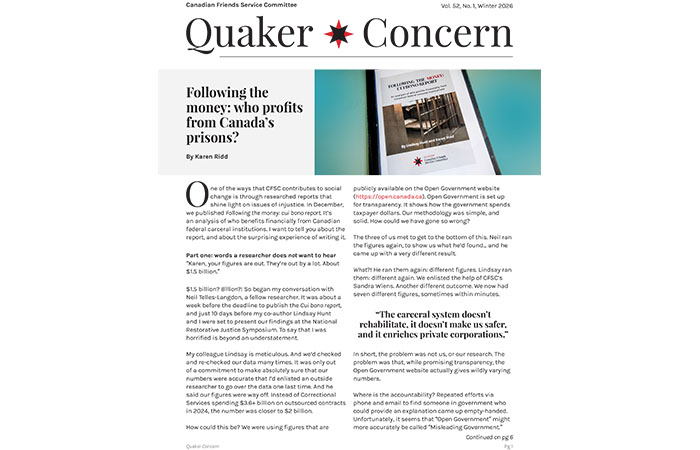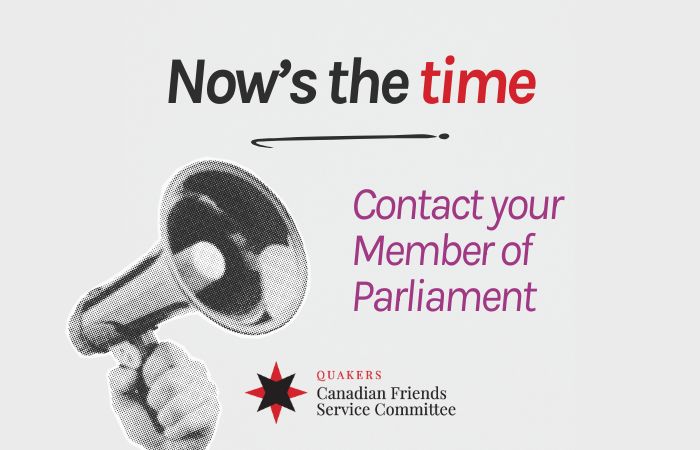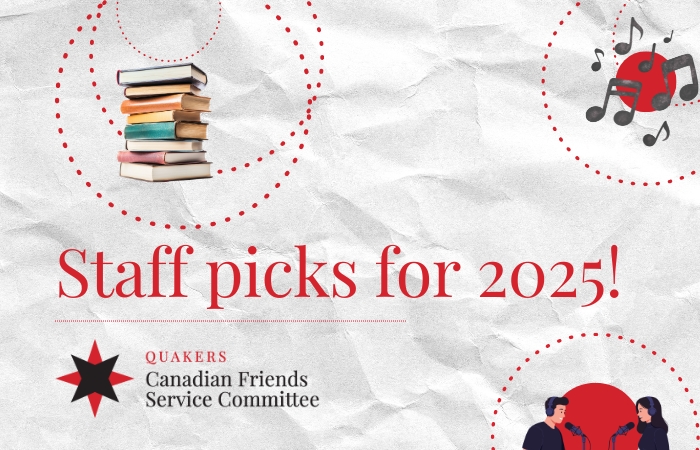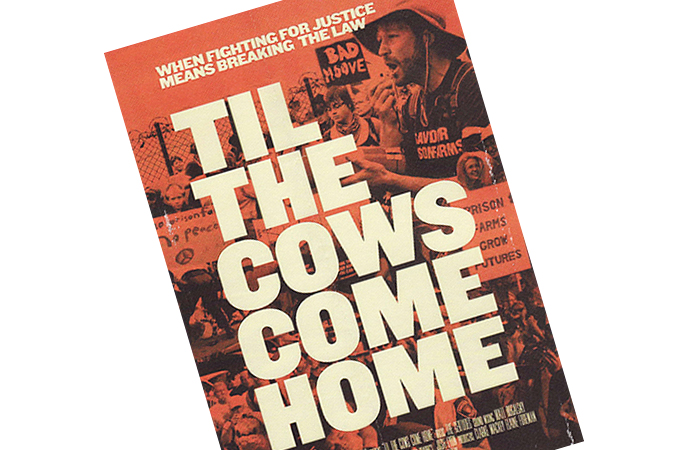
Have your say – reinstate Kingston Prison Farms
June 24, 2016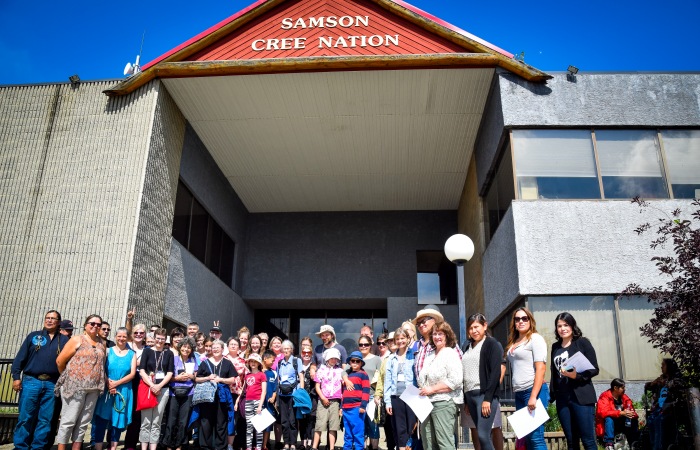
Quakers resolve to decolonize thinking, bear witness, and transform behaviour
August 11, 2016Prison expansion is costly and damaging to our communities when more successful alternatives exist. In the following open letter we explain our reasons for endorsing the No On Prison Expansion initiative.
#NOPE
c/o Justin Piché, PhD
Department of Criminology
University of Ottawa
Ottawa, Ontario, Canada
K1N 6N5
Re: Endorsement of the No On Prison Expansion (#NOPE) Initiative
August 2, 2016
Dear Justin and colleagues,
We understand that Ruth Morris, a Quaker activist on criminal justice issues, along with several other people, commenced work on researching and documenting prison expansion in the 1970s and 1980s, but unfortunately this work was not continued. The Canadian Friends Service Committee (CFSC) is pleased to learn about the No On Prison Expansion (#NOPE) initiative that will continue to monitor prison expansion in Canada.
CFSC has agreed to endorse this initiative. We understand the purposes of this initiative are to:
- Gather information on the construction of new jails, prisons and penitentiaries, as well as additions to existing carceral facilities across Canada.
- Disseminate information obtained with the aim of opening-up spaces for informed dialogue on the consequences of expanding prison infrastructure.
- Call for a Canada-wide prison expansion moratorium, based on the position that prison expansion deepens our reliance on a costly, unjust, and ineffective response to criminalized conflicts and harms.
- Promote carceral divestment strategies that diminish our use of incarceration.
- Promote justice reinvestment strategies that would divert funds currently destined for prison expansion towards addressing social inequalities that foster ‘crime’ as a primary means of prevention.
- Advocate for the use of prison divestment savings to build much needed capacity in Canadian communities for restorative and transformative justice processes.
Reflecting on our own testimonies of faith, we find the global increase in incarceration, despite the rise of more effective alternative approaches, raises questions about the punitive mindset which pervades society and justice systems. “Punitive approaches are guided by coercion, misuse of power, and fear, fostering additional trauma. The predominant focus on punishing offenders commits the great majority of the system’s energy and resources to legal processing, prisons and incarceration. Justice for survivors and communities become unlikely” (Canadian Yearly Meeting, 2010).

Credit Tim Pearce CC-BY
There is little evidence that incarceration and punishment are deterrents or rehabilitate. The vast majority of prisoners return to the community without the skills for family and community integration or to contend with the problems that led to incarceration, such as limited employment, illiteracy and the breakdown of family relationships. In fact, for some incarcerated persons, prison can lead to the increased risk of re-offending or committing more serious offences. Incarceration is also an expensive approach to public safety. While our reported crime rate declined 33.1% between 1998 and 2013, expenditures have increased. According to the Office of the Parliamentary Budget Officer, Canada spent $20.3 billion on criminal justice in 2011−2012, which is comparable to what was spent on National Defence. This spending on security, courts, and corrections diverts funds from more effective services.
This initiative is very timely, given the promise of increased spending for infrastructure in the recent budget tabled by the new federal government, some of which has the potential to be allocated towards new or refurbished prisons. The work of #NOPE will assist CFSC in its work toward discerning, developing and encouraging responses that actively prevent harm, repair harm and move beyond harm in relation to the justice system through means that are healing for all concerned and for society as a whole.
In Friendship,
Lana Robinson,
Clerk, Canadian Friends Service Committee
Download this open letter in PDF.
Learn more about our transformative justice work.


